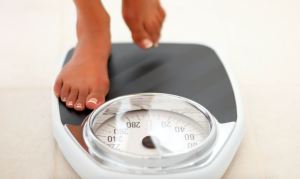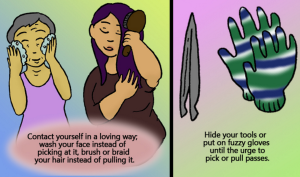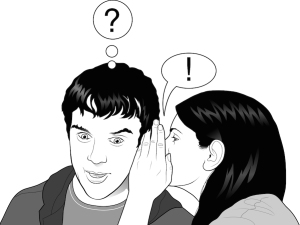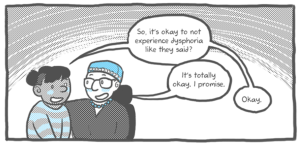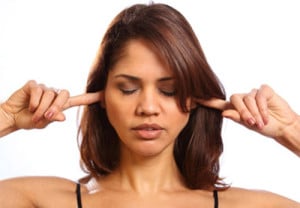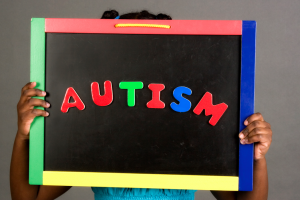(Content warning: references to orthorexia, anorexia, and exercise addiction.)
I remember it happening in slow motion.
Looking in the mirror, night after night, and seeing my belly for the first time. Arms that seemed to grow in mass – glacially, imperceptibly, but somehow I could see it. Thighs that got bigger, rounder, thicker, taking root in the ground like the trunks of trees.
Gaining weight was surreal for me. I had been weight suppressed since I was thirteen – orthorexia, exercise addiction, and a couple of rounds in the ring with anorexia – and I was finally “recovered enough.”
I was at a “normal weight” for several years, but it was still not enough to get my period back from the clutches of the so-called “female athlete triad.”
Finally, I realized that enough was enough. I went 704 days without a period (yes, I counted), and over the course of that time, I gained weight.
According to the authorities on Being Healthy, I’m now considered “overweight” (even though the original standards for “normal” weight are fundamentally flawed).
As a person who was always known as the “fit one,” this designation could have the potential to send me spiraling back into the disordered diet and exercise behaviors that got me here in the first place.
But somehow, it didn’t.
I know that many people – even those without eating disorders – are struggling with body image. We live in a world that exalts the “healthy looking” body. We live in a world that’s built on the foundations of the diet industry, and even if you’re not on a diet, you probably still use the language of dieting (saying you’re “in” or “out of shape,” or “good” or “bad” depending on what you consume or expend).
But what happens when weight gain — weight restoration — becomes the very thing that means the difference between health or not? What happens when you’ve dieted your body into metabolic dysfunction, and weight suppression is no longer an option or even possible? How do you still love yourself in a world that’s determined to make weight the number one reason for self-hate?
I believe that weight gain in the age of dieting is one of the hardest internal battles we may have to face. But if we want to truly embrace our lives in healthy ways, weight gain may not only be important, but also inevitable.
So how do you take care of yourself when you ditch diet culture and keep yourself from spiraling back into a dark, scary place once you realize you’re gaining weight?
I may not have all the answers, but here are three important ways to keep your head up while you adapt to your new reflection in the mirror.
1. Drop the Media
In the US, we care a lot about weight loss. We talk about it. Obsess about it. Glorify it. Because we’ve all heard at least one (read: hundreds of) news story about the obesity epidemic. We’ve all at least seen the trailer for Wall-E, and we know the dystopian future that awaits us if we stop being diligent about our bodies for even a second.
In nature, all “health” means is proper metabolic function, and all “fitness” means is the capacity to survive to reproductive age and pass on our genes. In the media, however, health and fitness have a different connotation – which hinges on being below a certain body mass, eating a certain number of calories, and not ever, ever hitting the dreaded plus-size clothing rack.
I speak with people all the time who are struggling to ditch diet culture and are scared to death of gaining weight because of the very limited range of body shapes, sizes, and types that the media portrays as acceptably healthy.
Because everyone has a personal brand, a blog, and a social media following to keep up, our health leaders have to maintain a certain aesthetic to even pass as legitimate anymore — but they devote their lives to calorie restriction, intense exercise, extreme athleticism, and constant dieting. This is not normal but is portrayed as such.
That was one of the hardest lessons I ever had to learn: My life is not about selling diet culture back to those who are stuck in diet culture.
This means doing something that can be very scary: ditching the media.
Obviously, unless you’re going to go live like a hermit in the woods, you’ll never completely be able to get away from a narrow-minded, “health”-obsessed media, but you can rebel against diet culture by not actively participating in it.
If you’re constantly turning on, tuning in, clicking, liking, and sharing media that promotes a narrow range of acceptable body sizes, you’re allowing yourself to be manipulated by that specific message. Even if you think you’re above it.
Every second you spend worrying about the body-part-you-should-hate du jour (and spending money and time on trying to “fix” that body part) is a second that you have donated to and invested in diet culture.
Stop watching Joy Bauer and Dr. Oz. Throw away Women’s Health. Unsubscribe from the healthy living blogs and Paleo podcasts. Unfollow people who are sharing testimonials for their 21 Day Fix or It Works Wrap on Facebook. Leave the vegan forum, and, for the love of Pete, turn off the TV as soon as they start showing you images of faceless fat people with scaremongering headlines about the impending obesity apocalypse.
More importantly: Stop creating this media.
Stop trying to get more likes on your Instagram pics by showing off your bikini bridge or thigh gap. Stop trying to earn love with your fitspo Pinterest board. Stop “being a role model” for other people who can be seriously harmed — just as you currently are — by the idea that only thin/lean/fit bodies are good bodies.
The less time you spend contributing to the creation and spread of diet culture, the more time you have to go and actually live a fulfilling life — and you’ll be one less voice amplifying the voice of our national disorder.
If you feel adrift without the constant influx of thin-bodies-are-the-only-good-bodies media, fill the void with body positive blogs, Tumblrs, podcasts, and Instagram feeds. Or get away from the screen and go out into the world and experience bodies of all shapes, sizes, weights, and abilities experiencing life and generally having fun.
This made it much easier for me not to get down on myself when I first started going up a clothing size. I felt less alone, less wrong, and less unhealthy.
Especially because it was gaining weight that helped me regain my health.
2. Cut Out the Concern Trolls
“You’re glorifying obesity!”
“I just want to help people be healthier.”
“Look, I’m all for body positivity, but you have to draw the line when it comes to health.”
Being positive about a range of body sizes is not glorifying ill-health. But that’s very difficult to express to the concern trolls because based on their own internally accepted idea of the world, they’re—well—concerned.
Sometimes “they” include your family or friends or very expensive personal trainer. Sometimes “they” include incredibly horrible jerks on the Internet who are more “troll” than “concern.” Sometimes, it’s you yourself.
When I was getting certified as a personal trainer, I was constantly trying to concern troll people at the gym. I would stand around fatter people, wearing my sports bra, shaking my head and sighing loudly until they asked me for nutrition advice. Sometimes, I wouldn’t even wait for them to ask.
Even when I started my work as a wellness coach, I was really concerned with peoples’ diets, posting article after article on the correlations between carbohydrates and obesity. Because if I could just save one person…
I got a real kick in the teeth when my basal metabolic rate slowed down after years of weight suppression and even the thyroid meds didn’t help me drop weight. Suddenly, even though I was eating well and exercising a lot, I was gaining weight. I was the woman in the gym beside whom thin trainers would shake their head.
That’s when I went out and did research. Not the kind of “research” that concern trolls do, wherein confirmation bias is the name of the game. I sought out writers and researchers who would challenge the prevailing paradigm and help me see a world outside of the six pack.
I read books like Body of Truth and Fat Talk Nation and started talking to authors, clinicians, and researchers who were working in the eating disorder recovery and health at every size space. I began to understand that a lot of the “facts” about health that I was parroting at people who concerned me were more truthiness than truth.
I also began to ask what right I had to be concerned about other peoples’ bodies. I’m not here to save the world, and other peoples’ bodies have nothing to do with my own. And before you start yelling at me about taxes and the health care system, consider the fact that it’s not fat, but health complications caused by the constant weight yo-yo of dieting that’s the real problem.
If you’re truly concerned about people’s health, you’ll stop telling them to diet. And if your loved ones are truly concerned about you, then you need to speak up and let them know that their concern trolling isn’t doing you any good.
You’re not going to save everyone from diet culture, but you can at least save yourself.
Leave the trolls behind. Change the conversation with the people who matter (or steer it away from food and body size in general). And then challenge your own thinking.
Because until you can view weight gain as a potentially positive event, you’ll never be able to prove your disordered, diet-addicted internal dialogue wrong.
3. Prove Yourself Wrong
The most important thing you can do right now if you want to ditch diet culture is drop the before-and-after picture.
Human beings love counting things. We like to quantify our progress. And we love to share visible successes.
The trouble with that is when you start to look at life as a dichotomy between “Where I Am” and “Where I Could Be,” the implication is that the grass is greener where you’re not.
This is especially troubling when it comes to weight because we’re so inundated with before-and-after pictures wherein the before contains an unhappy-looking overweight person and the after depicts a radiant, smiling thin person, accompanied by a written testimonial that explains how life was shit before the weight came off.
As someone whose body is now a before-and-after picture in reverse, I could dwell on the fact that the “overweight” me is supposed to be unhappy until I get back to the “thin” me – or I could do all of the things that are promised to “thin” me in the body I have now.
I like to think that, during the last year, I have proven every expectation wrong. I got a better job. I made and held onto friendships. I started dating. I started dancing. I moved out, developed a sense of independence, and finally, for the first time in my life, felt comfortable in my own skin.
And none of those things would have happened if I had spent that year fixating on fixing my body.
I was proactive about living my best life now — about pursuing opportunities, about showing up, about dropping the media and the trolls and picking up relationships that eschewed judgment on my body. And by being proactive, I proved my inner diet voice wrong.
Every time it tried to tell me that I was too big to wear a bathing suit and enjoy my day at the beach or that I was too out of shape looking to dance or that I was not thin enough to deserve mutually satisfying sex, I put on the bathing suit, put on my dance shoes, and started dating.
My point is: If you believe that your weight is holding you back from enjoying your life, then you’re right. And, on the same token, if you believe that you are a worthy, wonderful person who can and will participate in satisfying, exciting, enlivening activities no matter what your weight, you’re also right.
Which is precisely why proving yourself wrong about your weight can help you begin to prove yourself right where it matters.
***
It’s okay to be afraid of gaining weight: You’ve been taught all of your life that this is a legitimate and important fear, and I hope you can acknowledge it and give yourself space to address that fear in a loving and compassionate way.
But I also want you to know this: You may not gain weight when you ditch diet culture, but if you do, it’s okay.
Weight gain is not the end of the world. In some cases, it’s the beginning.
Which is why it’s time to look in the mirror and ask yourself the honest question: What can you gain when you stop trying to lose?
[do_widget id=’text-101′]
Kaila Prins is a Contributing Writer for Everyday Feminism and a health coach who works with women who are ready to stop “recovering” from disordered eating and start “discovering” their true identities. Kaila’s health coaching services, as well as her blog, can be found at In My Skinny Genes, and she hosts a weekly podcast called Finding Our Hunger. She also counts characters and not calories on Twitter @performingwoman.
Search our 3000+ articles!
Read our articles about:
Our online racial justice training
Used by hundreds of universities, non-profits, and businesses.
Click to learn more


